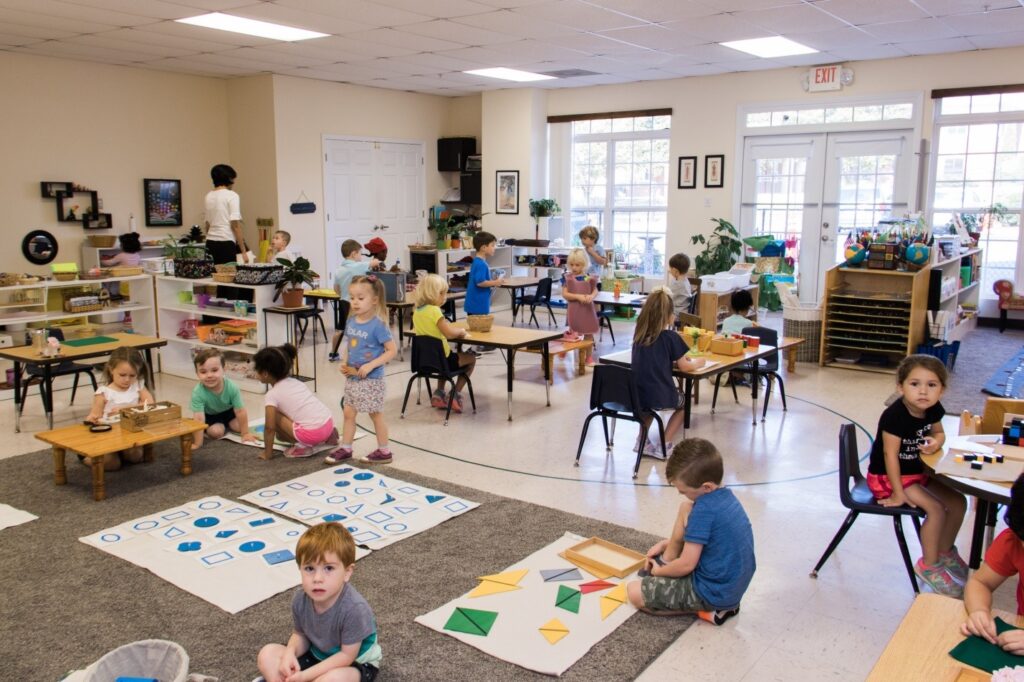If you’re wondering what’s best for your preschool or primary-aged child’s education these days—online classes or in-person learning—you’re not alone. Between today’s efforts to keep everyone healthy and the advancement of new technologies, virtual learning has been growing in use and often seems appealing at first glance.
But is it best for your child? Not necessarily. Here’s why.
Studies Show Strong Benefits for In-Person Montessori Classes
The advantages of in-person learning experiences are well known and clearly established—especially when it comes to children aged 2 to 9. During the stages of early education, the social interactions, support, physical activities, and other benefits all come together to create a unique, powerful atmosphere in which students can grow.
And that’s where the Montessori approach excels. In our classrooms, our authentic, well-planned Montessori activities and philosophy ignite students’ love for learning and sets them up for lifelong success.
When you choose in-person Montessori classes, you’ll see these five unmistakable positives that are hard to achieve online.
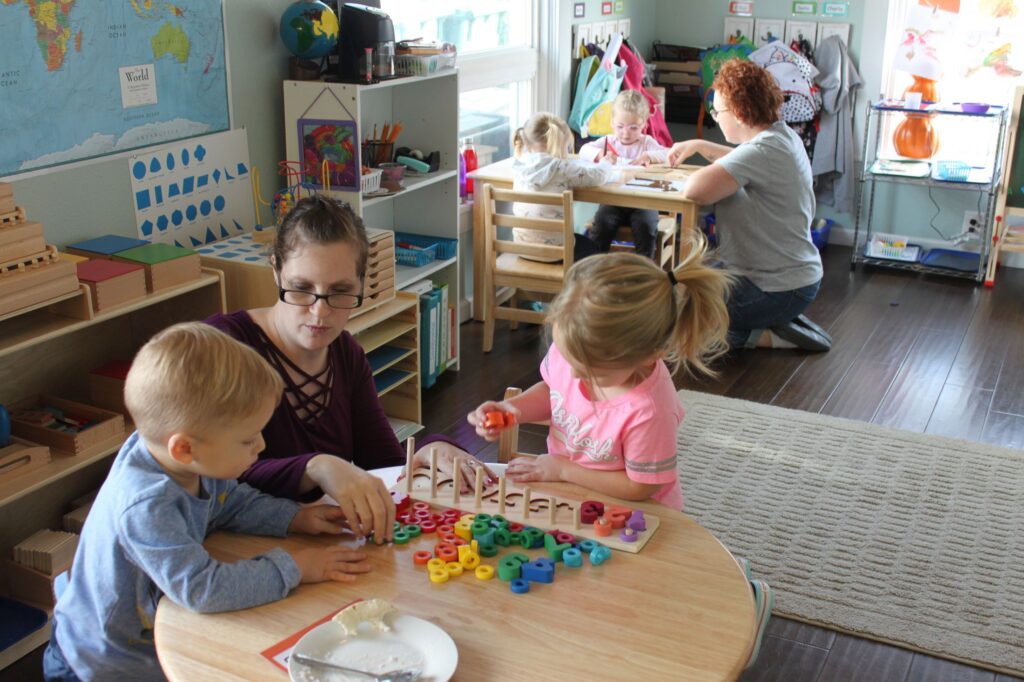
1. It Builds Stronger Connections
Academics aren’t the only element of the preschool classroom experience—the social experience is just as important to your child’s well-being. When children develop healthy relationships, it sets them up for lifelong success because they learn a host of vital skills:
Self-discovery — As your son or daughter interacts with others, they realize what makes them unique and special.
Appreciation for diversity — They come to realize and respect that others are different, and differences can be good!
Social graces — Students grow in empathy during in-person interactions, and gain experience in listening and conversation skills.
There is nothing quite like face-to-face social interactions with others to help preschoolers make friends, experience positive connections, and grow into caring citizens of the world.
2. It Boosts Mental, Emotional, and Physical Wellness
Isolation is hard on people of all ages—and preschoolers are no exception. Studies are showing that anxiety and depression increase for children who receive only online learning experiences.
In contrast, being able to physically be in the presence of other children during the learning process creates a host of benefits that boost well-being.
- Teamwork — In-person classes create unique opportunities for young students to collaborate.
- Exercise — When children are together, it’s easier to encourage them to enjoy playtime outdoors and other physical activities.
- Healthy snacking — In-person classes allow for shared snack times that focus on healthy eating habits.
- Reduced stress — Connection promotes mental resilience and provides children chances to practice conflict resolution.
A Montessori preschool and primary education does wonders for producing self-confidence in children.
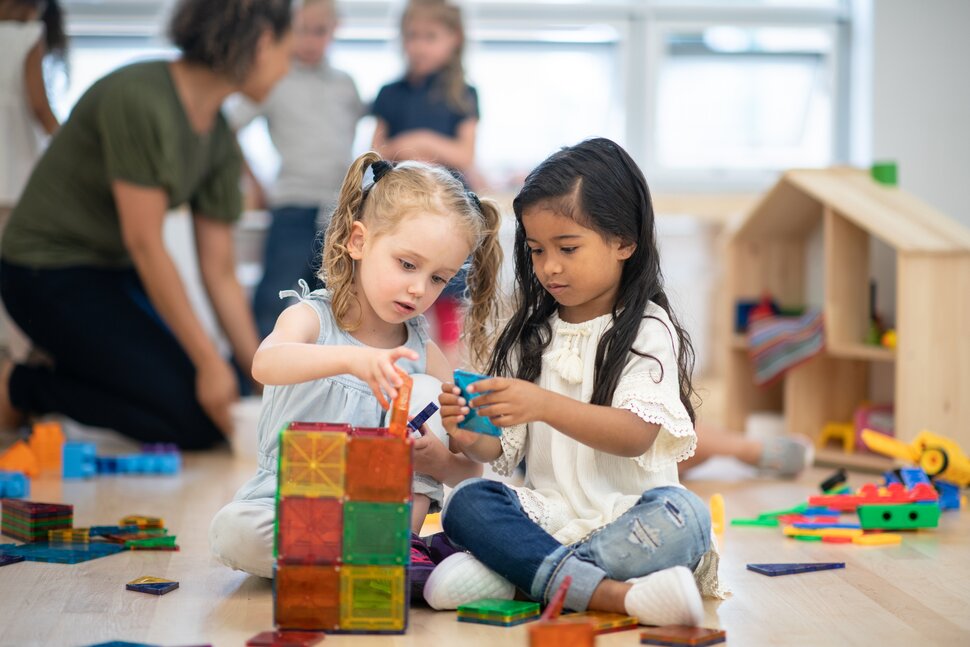
3. It Balances Structure with Flexibility
A successful life is all about balance, and your child learns how to achieve that balance through learning in our in-person classrooms. This is especially valuable for students in preschool and primary school, when they are discovering their independence and figuring out who they are as individuals.
Virtual learning simply doesn’t provide the proper mix of structure and flexibility. Many students fall through the cracks as a result. But with an in-person Montessori class, your child blooms in a variety of skills:
- Independence — Self-directed discovery and learning opportunities allow students to forge their own path.
- Self-correction — By encouraging students to critically assess their work, Montessori teachers equip children to take charge of their learning.
- Healthy variety — Classroom activities blend independent learning, small group learning, mentoring between children of different ages, and whole-group activities to provide a wealth of experiences—unlike virtual learning, which leaves children separated from one another.
4. It Better Suits Different Learning Styles
There are many ways for children to take in new facts and gain new skills. You may have heard of the four different learning styles before—each child tends to fare better when they can utilize their preferred style:
- Visual — These students retain new information more easily when they see it, such as through demonstration.
- Auditory — These students do best when they can listen to information, such as through a lecture or discussion.
- Linguistic — These learners gain knowledge most easily when they can read it and write it down, such as through taking notes.
- Kinesthetic — These learners take in new skills and facts through movement and hands-on experience.
Online classes tend to focus largely on auditory learning. And the need to stay in position for long periods of time can tax any young learner.
But in-person classrooms make it easier to accommodate all of these learning styles at once. As teachers interact with students, it’s simple to guide them into activities that promote a love of learning.
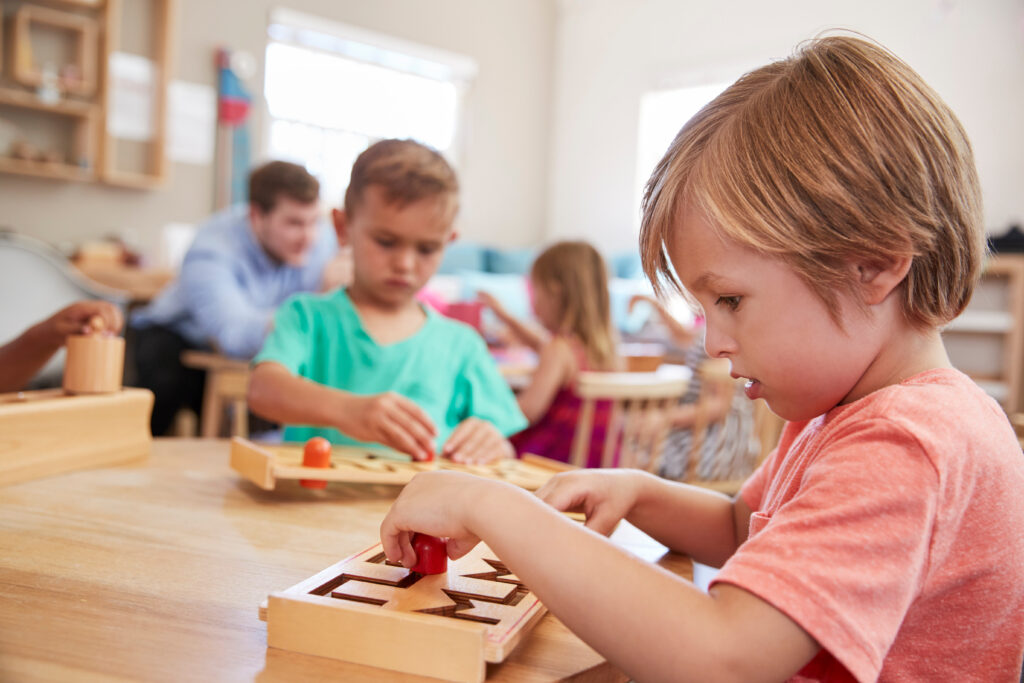
Montessori In-Person Classes Promote Healthy Environments.
Small classes
Small group approach is a principle of genuine Montessori learning, and it’s something consistently adhere to. Children do better in smaller classes where teachers can give them more time as needed.
Staggered schedules
Offer different programs to fit with the needs of busy parents. This also helps to ensure less crowded school and play areas.
Physical space
By its nature, Montessori education encourages independent activities. Students are much more likely to have room to themselves at individual workstations than they would in traditional classrooms.
Regular cleaning
Montessori classes also encourage children to develop a commitment to caring for their environment, which includes putting their own materials away (so no one else has to touch them) and cleaning up after themselves during lunch and snack time. Learning to care for themselves and their environment fosters healthy independence and also ensures classes stay cleaner.
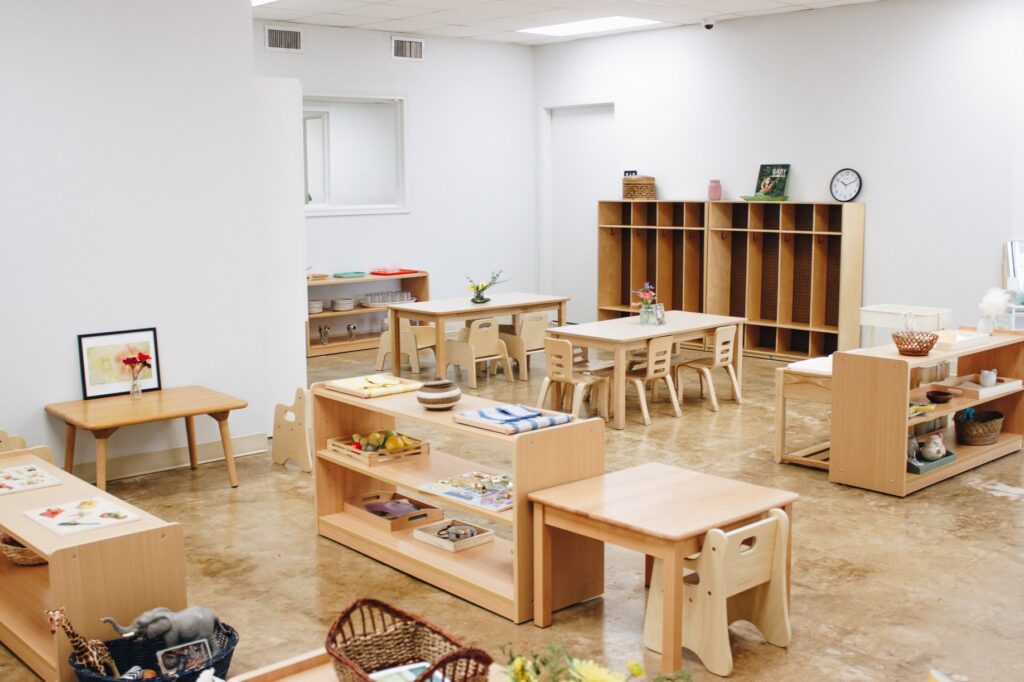
Equip Your Child to Achieve Lifelong Success
There’s nothing like the well-balanced, healthy, in-person environment of a Montessori classroom to prepare your son or daughter for a life filled with accomplishments. Discover how our program options can benefit your child, and let us know how we can help. We’re here to answer your questions and provide a safe place for your child to excel.

